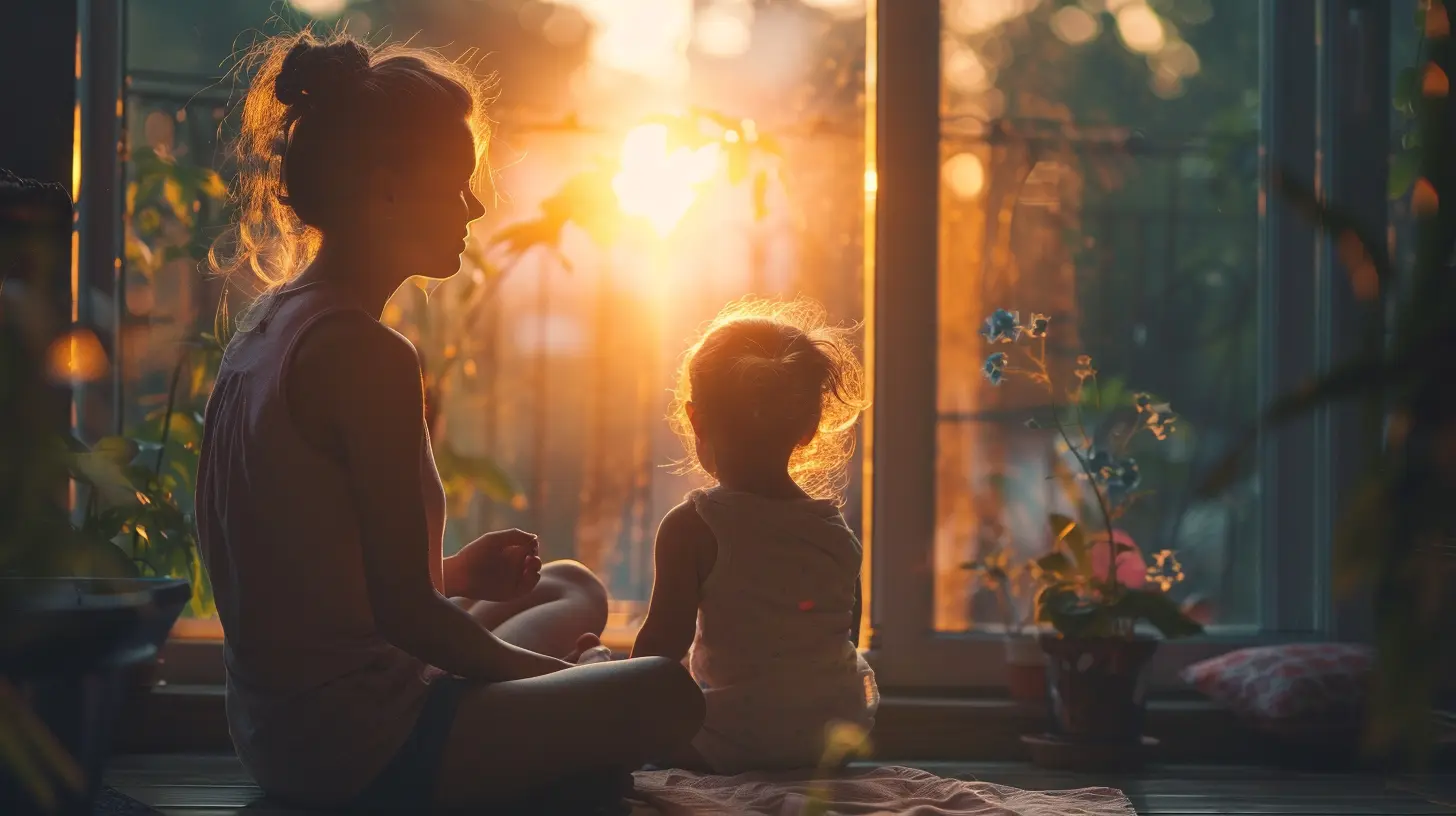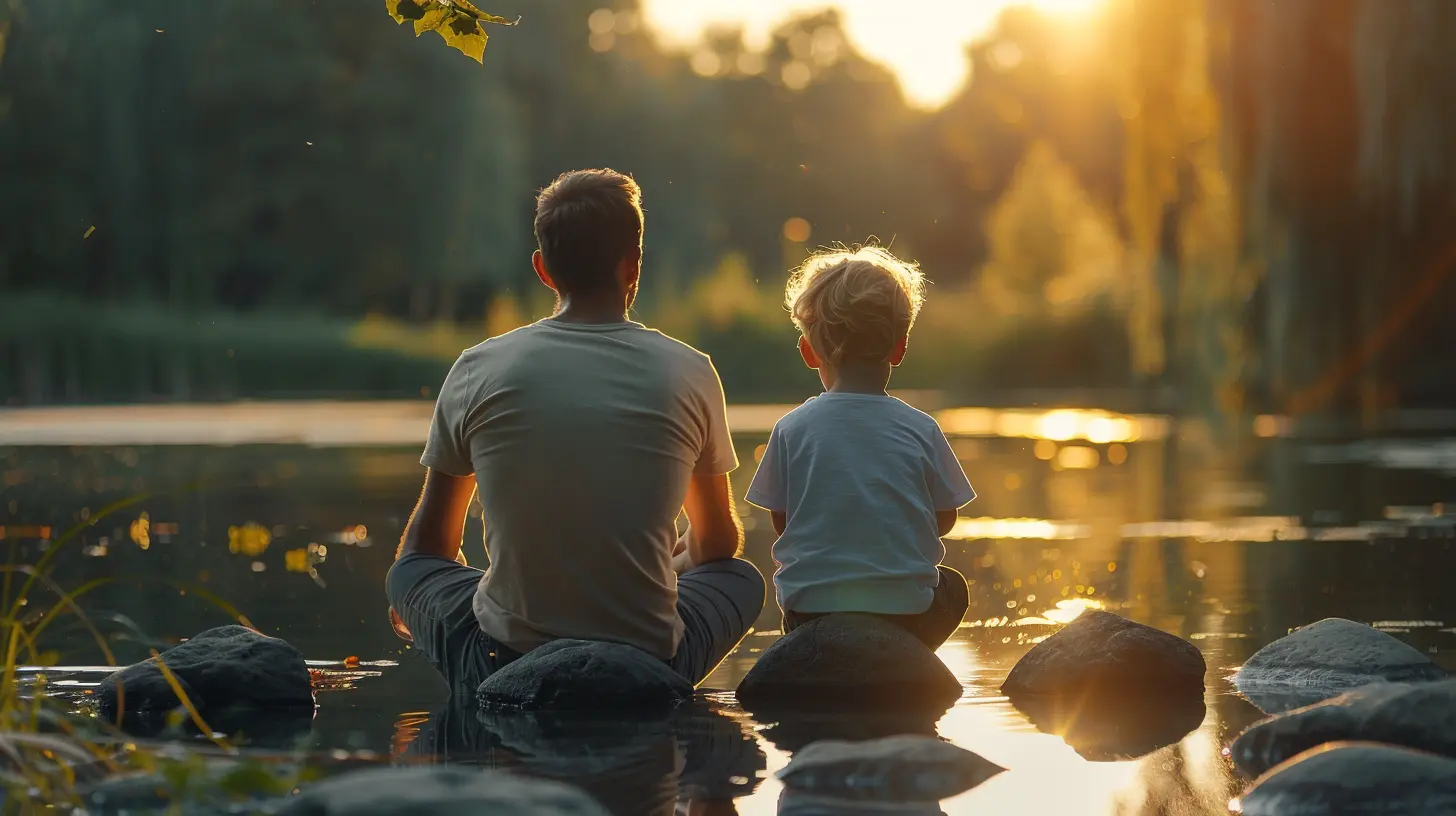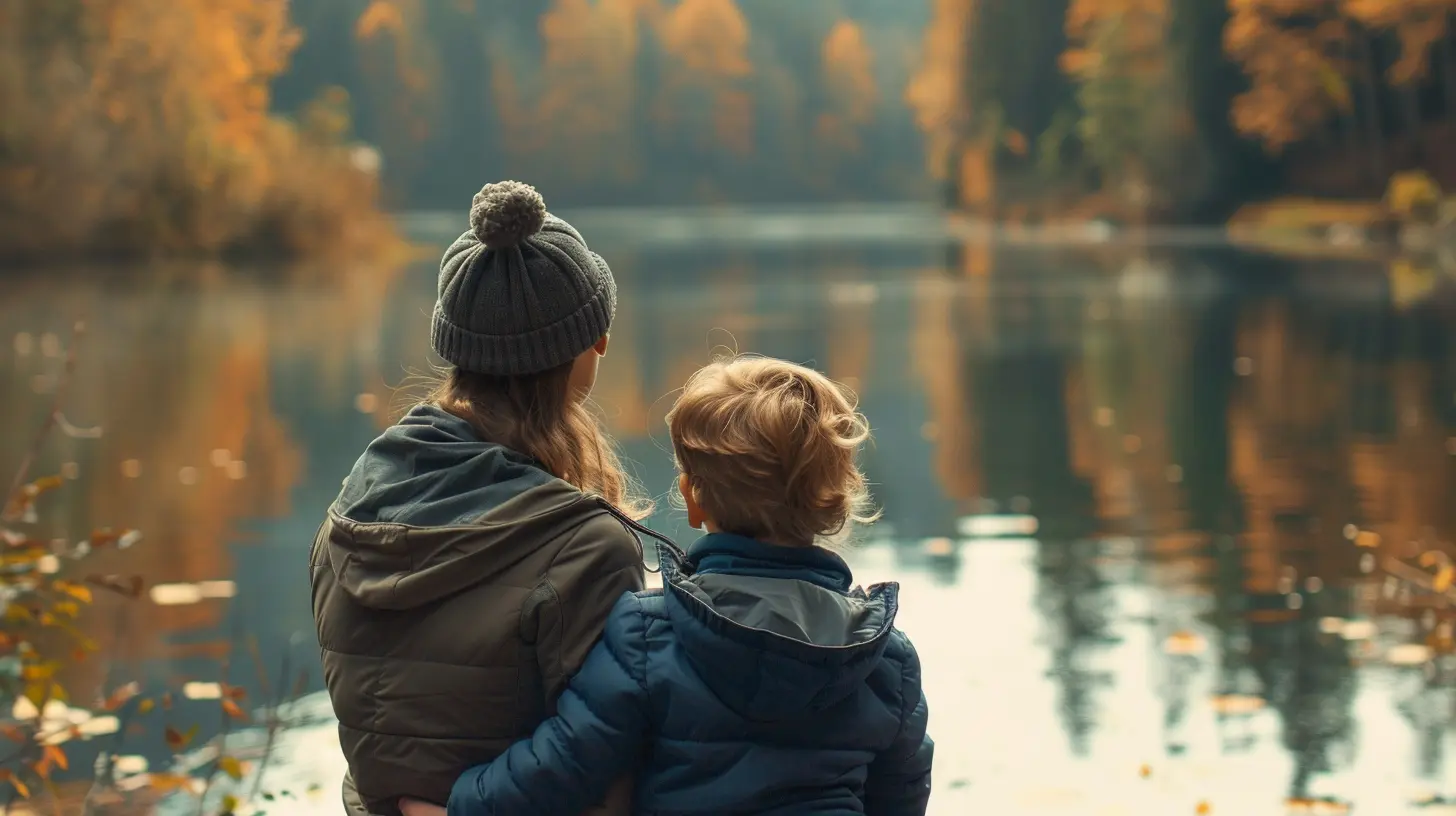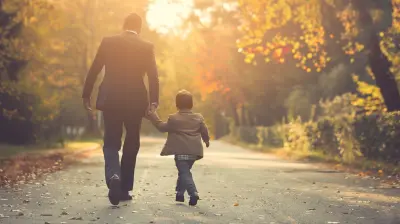How Mindful Parenting Can Prevent Burnout
10 August 2025
Ever feel like you're running on fumes? Like you're holding everything together with duct tape and coffee? Parenting is beautiful, magical, chaotic, and draining—sometimes all before 9 a.m. And if you’ve ever yelled, "Can everyone just stop talking for five minutes?!"... yeah, you’re not alone.
Burnout isn’t just a buzzword. It's real, and it’s sneaky. It creeps in between the endless diaper changes, school runs, emotional outbursts, and late-night Googling of “Why won’t my toddler sleep?”
But there’s a quiet superhero tool that can help: mindful parenting.
Hang tight, because we’re going to break down what mindful parenting really is, why it matters, and how it can save your sanity (without needing to channel your inner yogi or meditate on a mountain top).
What Is Mindful Parenting Anyway?
Let’s keep it simple. Mindful parenting is about showing up—fully, with your presence, your attention, and your compassion. It’s parenting with intention rather than running on autopilot.Imagine you’re having a cup of tea. You actually sit down, feel the warmth, breathe in the aroma, sip slowly. Now imagine parenting with that same kind of presence. That’s mindfulness.
It’s not about being perfect. It’s not about never losing your cool. It’s about being aware, even in the messy moments.
Mindful parenting includes:
- Listening with your full attention
- Being non-judgmental about your child and yourself
- Regulating your own emotions (deep breaths over snapping)
- Practicing compassion
- Being present in the now—yes, even during a tantrum in aisle five
Burnout: The Silent Parental Epidemic
Before we dive deeper, let’s talk about burnout. Because if you’re here, you might be feeling it.So, What Does Parental Burnout Look Like?
- Physical exhaustion — You’re tired, no matter how much sleep you get- Mental fatigue — Forgetting things, zoning out, short fuse
- Emotional numbness — Feeling detached, like you’re just “getting through the day”
- Loss of joy — The things you used to love about parenting feel like chores
Sound familiar?
Parenting doesn't come with sick days, paid leave, or lunch breaks. And when the pressure builds up, something's gotta give.
How Mindful Parenting Can Be Your Burnout Antidote
Mindful parenting isn’t a magic solution—but it is a game-changer. It helps you slow down, reconnect, and respond rather than react. Here's how:1. It Helps You Respond Instead of React
You know those moments when you’re one Lego injury away from snapping? We've all been there. Mindfulness teaches you to pause, breathe, and choose how you respond.That pause—it’s powerful.
Instead of yelling because your child spilled juice again, you take a breath and remember: they’re still learning. Is it annoying? Sure. But reacting with calm gives you peace and helps your child feel safe.
—
2. It Builds Emotional Resilience
Mindful parenting strengthens your emotional muscles.Rather than bottling up stress or exploding like a shaken soda can, you start tuning into your feelings. You notice when frustration starts bubbling. You accept it, instead of shoving it down.
Little by little, you build resilience. You don’t crumble with every meltdown or power struggle. Instead, you bend without breaking.
—
3. It Creates More Joyful, Present Moments
Parenting can feel like one long to-do list. But mindfulness pulls you out of future worries or past regrets and into the now. You start noticing the small, sweet things:- The way your baby’s nose scrunches when they laugh
- The warm weight of your toddler’s hand in yours
- The chaotic beauty of Lego cities and spilled milk
These moments don’t fix everything—but they remind you why you’re doing this in the first place.
—
4. It Reduces Guilt and Self-Criticism
Oh, parental guilt. That evil twin that whispers, “You’re not doing enough.”Mindfulness brings self-compassion into the mix. You start cutting yourself some slack. You realize that it’s okay to mess up, to lose your patience, to cry behind a closed door.
Instead of beating yourself up, you start talking to yourself like you would to a friend: with kindness. Game. Changer.
—
5. It Improves Communication with Your Kids
When you’re present and listening—really listening—your kids notice.They feel heard. Understood. Valued.
This builds connection, which makes cooperation and trust way more likely. Doesn’t mean your kids won’t ever throw a tantrum—but you’ll have a better chance of navigating it together instead of going head-to-head.
Plus, it teaches them how to manage emotions too. Win-win.
Simple Ways to Practice Mindful Parenting (Without Adding to Your To-Do List)
You might be thinking, “Sounds great, but I barely have time to shower—how do I add mindfulness to this mess?”Good news! Mindfulness isn’t about doing more; it’s about doing what you’re already doing…differently.
Here are a few doable ways to begin:
—
👂 Put Down the Phone and Tune In
We’re all guilty of scrolling mindlessly. But even a few minutes of full attention can make a massive difference.Next time your child is talking, put your phone down. Look them in the eye. Nod. Smile. You'll both feel the difference.
—
🌬 Use Your Breath as a Reset Button
Feeling overwhelmed? Close your eyes and take three deep breaths. In for 4…hold for 4…out for 4.Do it while your coffee brews or while hiding in the bathroom. It takes 30 seconds but can reset your entire mood.
—
🧠 Name What You’re Feeling
There’s power in simply saying, “I’m feeling overwhelmed” or “I’m getting irritated.”Naming emotions brings them out of the shadows and gives you power over them.
—
🧸 Join Them in Play—Fully Present
When you play, play. Like really play.Let the dishes wait 10 minutes and get down on the floor. Build the castle, race the cars, be the dragon. Let go of multitasking. Your connection will deepen, and so will your joy.
—
💤 Mindfulness at Bedtime
Use nighttime as a chance to slow down together. Read a book with your child, not just to them. Snuggle. Listen to their thoughts. It can be a calming ritual for both of you.What If You Mess Up? (Spoiler: You Will)
Mindful parenting doesn't mean you’ll never yell or lose your s#!@. You're human.The key is to notice it, forgive yourself, and try again.
Let your kids see you apologize. Let them see imperfect, authentic love. That’s more powerful than any “perfect” parenting style.
A sincere “I’m sorry I raised my voice—I was feeling frustrated” teaches emotional responsibility far more than a lecture ever could.
The Ripple Effect: Why This Matters More Than You Think
When you practice mindful parenting, it doesn’t just help you. It ripples out.Your child learns to trust their emotions, express themselves, and connect with others. They don’t just hear about emotional intelligence—they live it.
Your home becomes a haven—not a perfect one, but a grounded, loving one.
And you? You start enjoying this parenting journey a little more. Even in the chaos. Especially in the chaos.
Final Thoughts: You Deserve Peace Too
You’re not just a parent. You’re a person. You deserve rest, joy, and presence.Burnout doesn’t mean you're failing. It means you're trying really hard.
So if you’re tired, overwhelmed, or feel like parenting is more grind than glow—start small. Take a breath. Slow down. Be here, now.
Mindful parenting isn’t a destination. It’s a practice. One that can slowly, gently, bring you back to yourself.
One cup of tea, one deep breath, one real moment at a time.
all images in this post were generated using AI tools
Category:
Mindful ParentingAuthor:

Max Shaffer
Discussion
rate this article
1 comments
Oberon McIntire
Mindful parenting: because juggling kids and sanity shouldn’t require a circus act—or a fire extinguisher!
August 20, 2025 at 4:54 AM

Max Shaffer
Absolutely! Mindful parenting helps us maintain balance and awareness, reducing stress to keep our sanity intact.


